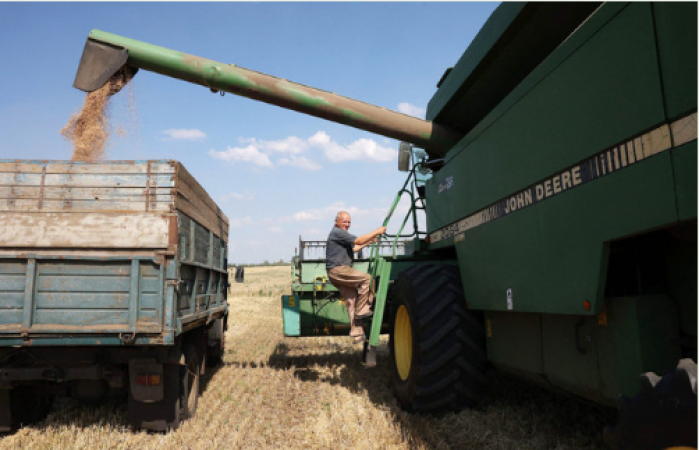
Washington: Experts warned on Friday that the stress on global food security, which is having a direct and devastating impact on people in poorer Arab, African, and Muslim countries in particular, has increased as a result of the war in Ukraine and record-breaking high temperatures in many parts of the world this summer.
According to them, the recent collapse of the UN-mediated Black Sea Grain Initiative, which had allowed Ukraine to continue exporting food crops and fertiliser despite being blocked by Russia, has led to ongoing shortages and sharp price increases in the world food markets. In the meantime, the problems have been made worse by the impacts of climate change, including droughts, on food production, particularly in Asia and Africa.
Growing levels of malnutrition in developing countries and children's stunted growth are the results of this food crisis. Arab nations like Egypt, Lebanon, Tunisia, and Jordan that have weak economies and currencies are particularly hard hit by the effects.
Also Read: The two NASA brothers Voyager 1 and 2 are now at the end of their lives
More than 800 million people worldwide are now considered to be food insecure, according to Cary Fowler, a renowned expert on food security and former executive director of the Global Crop Diversity Trust, who was speaking at a press conference.
According to him, this summer has been the warmest on record, which has had a negative impact on agriculture and crops all over the world. The heat has severely impacted Asian nations and has interfered with rice production, he continued.
Concerning the effects of the conflict in Ukraine, Fowler stated: "Ukraine has historically been one of the world's major producers of wheat, barley, maize, and sunflower oil, which is essential in the world market for food-oil.
Also Read: FAO and WHO to find Listeria sat together discussing tincture in US
He noted that 136 out of 196 nations worldwide are net food importers. He added that many of the top 15 importers of Ukrainian grain are underdeveloped nations that experience high rates of childhood malnutrition and stunted growth.
In some impoverished Arab and Muslim countries in the Middle East, Africa, and Asia, the prevalence of these diseases is alarmingly high. According to him, the malnutrition rate has reached 22% in Egypt, 28% in Bangladesh, 38% in Libya, 31% in India, 18% in Kenya, and 31% in Indonesia.
Prior to the start of the war in February 2022, according to Ambassador James O'Brien of the US State Department's Office of Sanctions Coordination, Ukraine supplied 10% of the world's food supplies.
He attributed the conflict to Moscow and charged it with "attacking the global food system" by deliberately destroying Ukraine's agricultural infrastructure in order to drive up global prices and strengthen Russia's negotiating position with Western countries.
Also Read: UN to drew the food price rates as got affected by the weather in the Sea
Before Russia withdrew its approval for shipments from Ukraine in July, O'Brien emphasised the crucial role the Black Sea Grain Initiative had played in efforts to mitigate the effects of the global food crisis.
"It's a critical pathway, especially for the global south," he said, noting that 32 million of the 55 million tonnes of grain that Ukraine exported through the initiative in 2022 came from that region.
Of the 32 tonnes shipped, "more than 19 million tonnes went to low-income countries, and two-thirds of the wheat shipped went to the poorest countries," he claimed